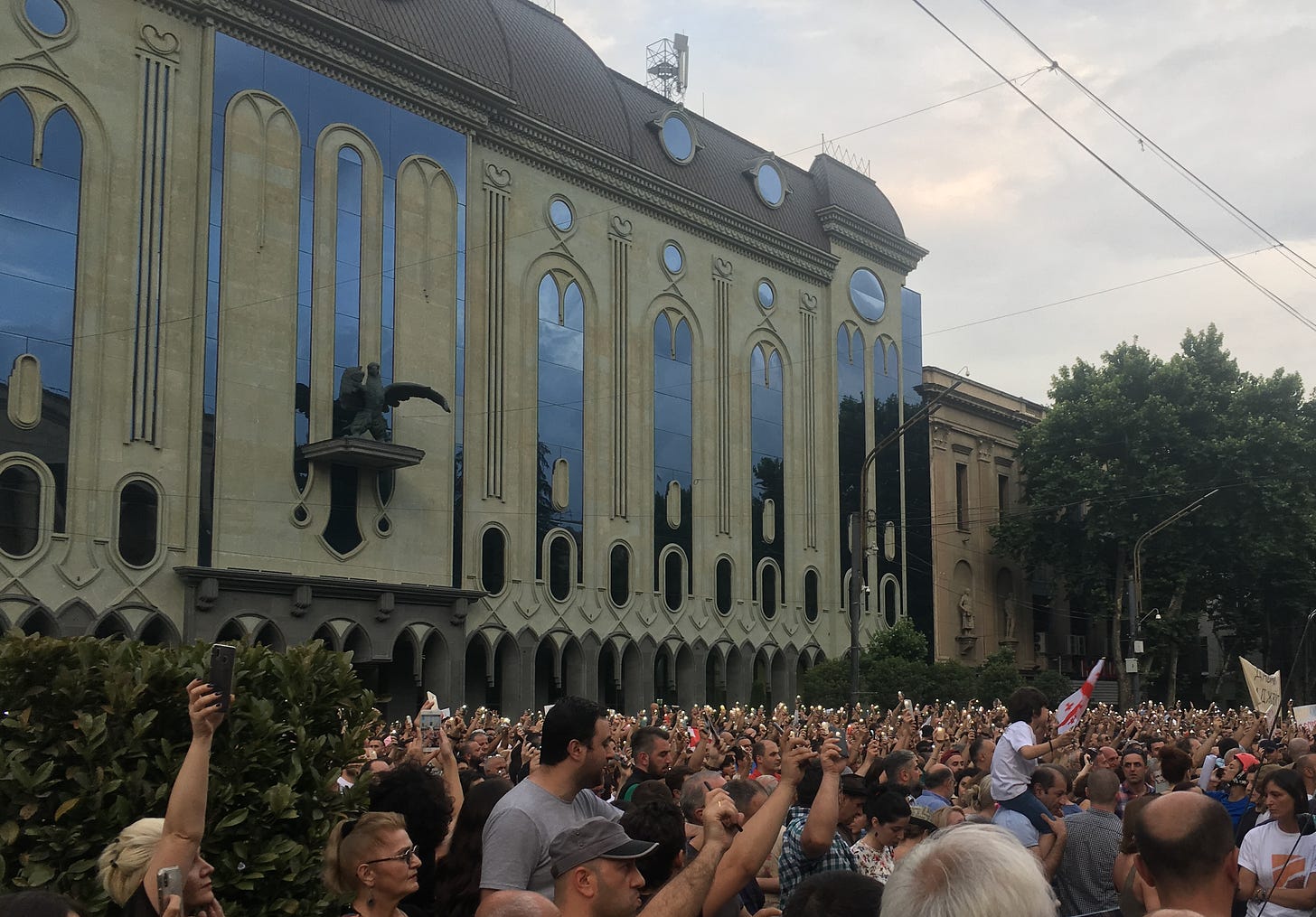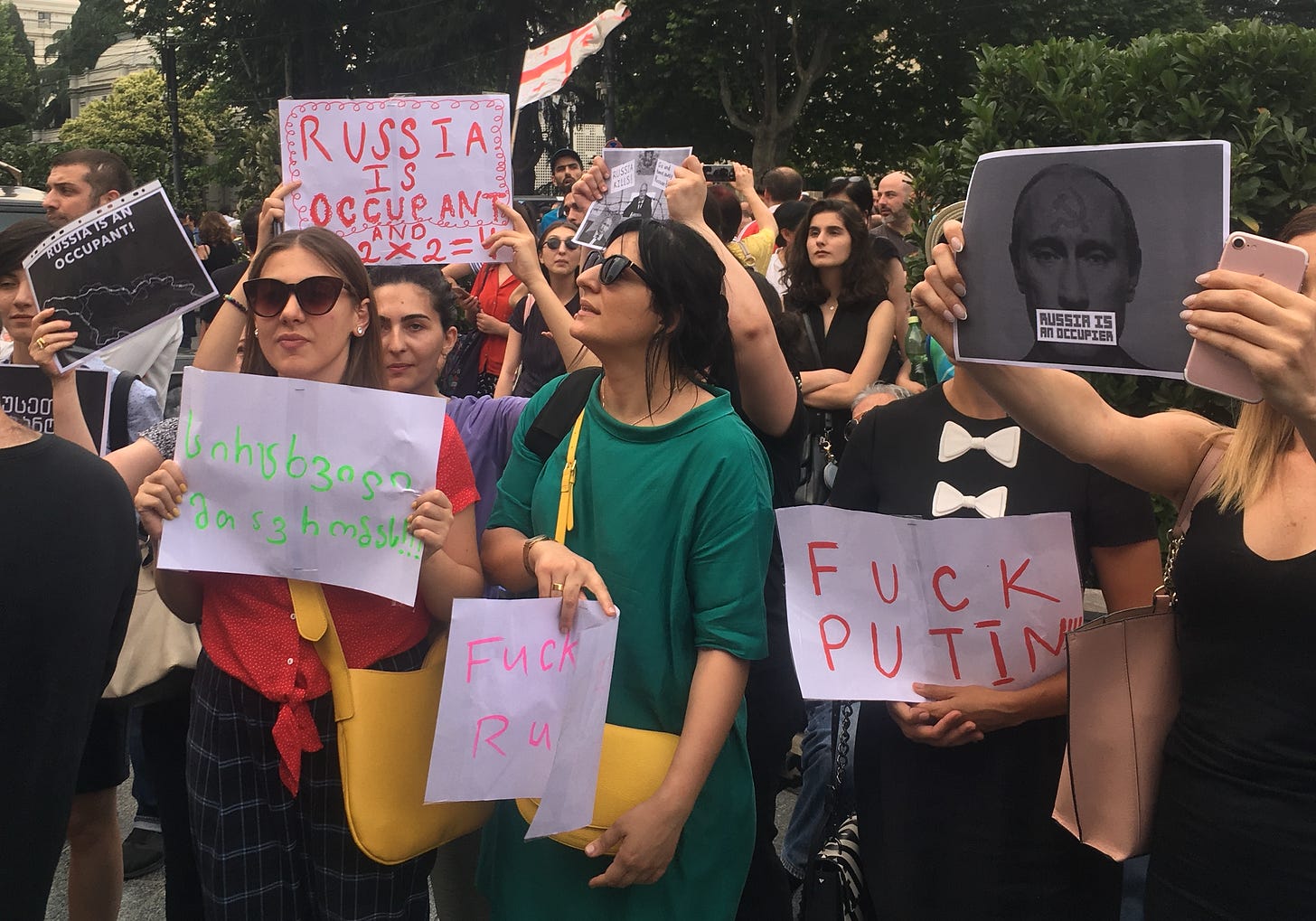It’s been a tumultuous week in Tbilisi, Georgia, where I’ve been since Monday. The country is hosting its first Pride celebration, and traditionalist homophobes threatened the organizers and attendees.
In the background, parliamentarians from across the Orthodox world descended on the capital for the Interparliamentary Assembly on Orthodoxy (IAO). What should have been a non-event triggered a protest of thousands after Russian lawmaker Sergei Gavrilov chaired the IAO’s plenary session from the Speaker of the Georgian parliament’s seat. Despite claiming Georgian heritage, Gavrilov is no friend to Georgia. He recognizes the “independence” of South Ossetia and Abkhazia, Georgian two regions that have been occupied by Russia since 2008. He called the five-day war that led to their occupation a “minor misunderstanding” between Tbilisi and Moscow. Understandably, Gavrilov’s “occupation” of the Georgian Speaker’s seat was a symbol that many Georgians were not willing to let stand.

Thousands of peaceful protestors gathered in front of parliament on Thursday evening. Many carried signs that said “Russia is an occupier” or “Fuck Putin.” My favorite read “Are you fucking kidding me?”, pondering on poster board the question on the country’s collective mind last night: how could the Georgian government, at war with Russia just over a decade ago, allow such an blatant affront to the Georgian nation to take place?

The protest was about more than bad optics; Georgia’s ruling party, Georgian Dream, has pursued a policy of engagement with Russia since assuming power in 2012. Its leaders claim that in order to make progress in ending the conflict with Moscow, Georgia should not act as an “irritant,” so the government has sought closer economic, cultural, and religious ties with its norther neighbor. These sectors have nothing to do with politics, Georgian Dream maintains, but as one former official told me before the protest yesterday, “everything is politics, especially in the era of hybrid warfare.” Indeed, organizations like the IAO and “Russki Mir (Russian World),” which Georgian Dream has welcomed into the country, are vectors for Russian influence in Georgia and beyond.

Protestors I spoke with said they weren’t looking for a specific outcome from the demonstration, but wanted to send a message that Georgians would not consent to the Kremlin’s creeping influence and Georgian Dream’s tacit acceptance of it. Later in the evening, protestors demanded the Speaker of the Parliament resign, and as the demonstration continued into the early hours of Friday morning, clashes broke out between protestors and police, who fired tear gas and rubber bullets into the crowd. (Don’t worry, Mom, I left by then.) Though both the President and Prime Minister condemned Gavrilov’s actions in parliament, both cast doubt on the authenticity of the demonstration, claiming it was not spontaneous, but “artificially instigated.”
From my perspective, the gathering seemed absolutely genuine, showing none of the signs of paid protests that are typical for the region. The crowd was a mix of ages, genders, and economic backgrounds, and all were engaged with the action. What surprised me wasn’t the protests or protestors themselves, but that in a country that is 20% occupied by Russia, they needed to happen at all. Russian interference comes in more forms than online meddling; it’s a lesson the West would do well to learn.



